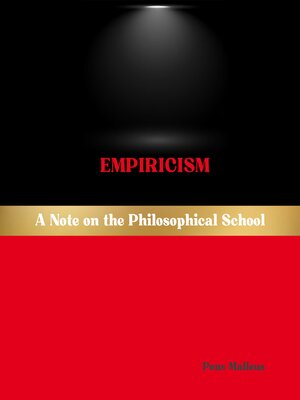Empiricism
audiobook (Unabridged) ∣ A Note on the Philosophical School · Western Philosophical Schools
By Pons Malleus

Sign up to save your library
With an OverDrive account, you can save your favorite libraries for at-a-glance information about availability. Find out more about OverDrive accounts.
Find this title in Libby, the library reading app by OverDrive.



Search for a digital library with this title
Title found at these libraries:
| Library Name | Distance |
|---|---|
| Loading... |
This audiobook is narrated by a digital voice.
This book is an exploration of empiricism—one of the most enduring and influential schools of philosophical thought. Rooted in the conviction that knowledge arises primarily from sensory experience, empiricism has shaped not only philosophy, but also science, education, psychology, and modern political thought. Its lineage includes some of the most pivotal figures in intellectual history: John Locke, George Berkeley, David Hume, and later, thinkers like John Stuart Mill and the logical empiricists of the 20th century. Their writings, arguments, and ideas form the core of the inquiry that unfolds in these pages.
Empiricism stands in contrast to rationalism, its perennial counterpart, which emphasizes reason and innate ideas as the primary sources of knowledge. Rather than viewing the mind as a repository of pre-existing truths or as guided by pure reason alone, empiricists assert that the mind begins as a blank slate—tabula rasa—gradually filled through observation, sensation, and reflection. From this foundational premise, empiricism questions the scope and limits of human understanding, the nature of reality, and the basis of truth itself.
This book aims to offer a thorough yet accessible account of empiricism's development, its internal debates, and its relevance today. It begins by tracing empiricism's classical roots in ancient thought, noting how early inklings of empiricist attitudes appear in the works of Aristotle and the medical traditions of antiquity. From there, it moves to the early modern period, where empiricism found its most potent expression in the Enlightenment—a time when observation and experimentation began to supplant tradition and dogma.







